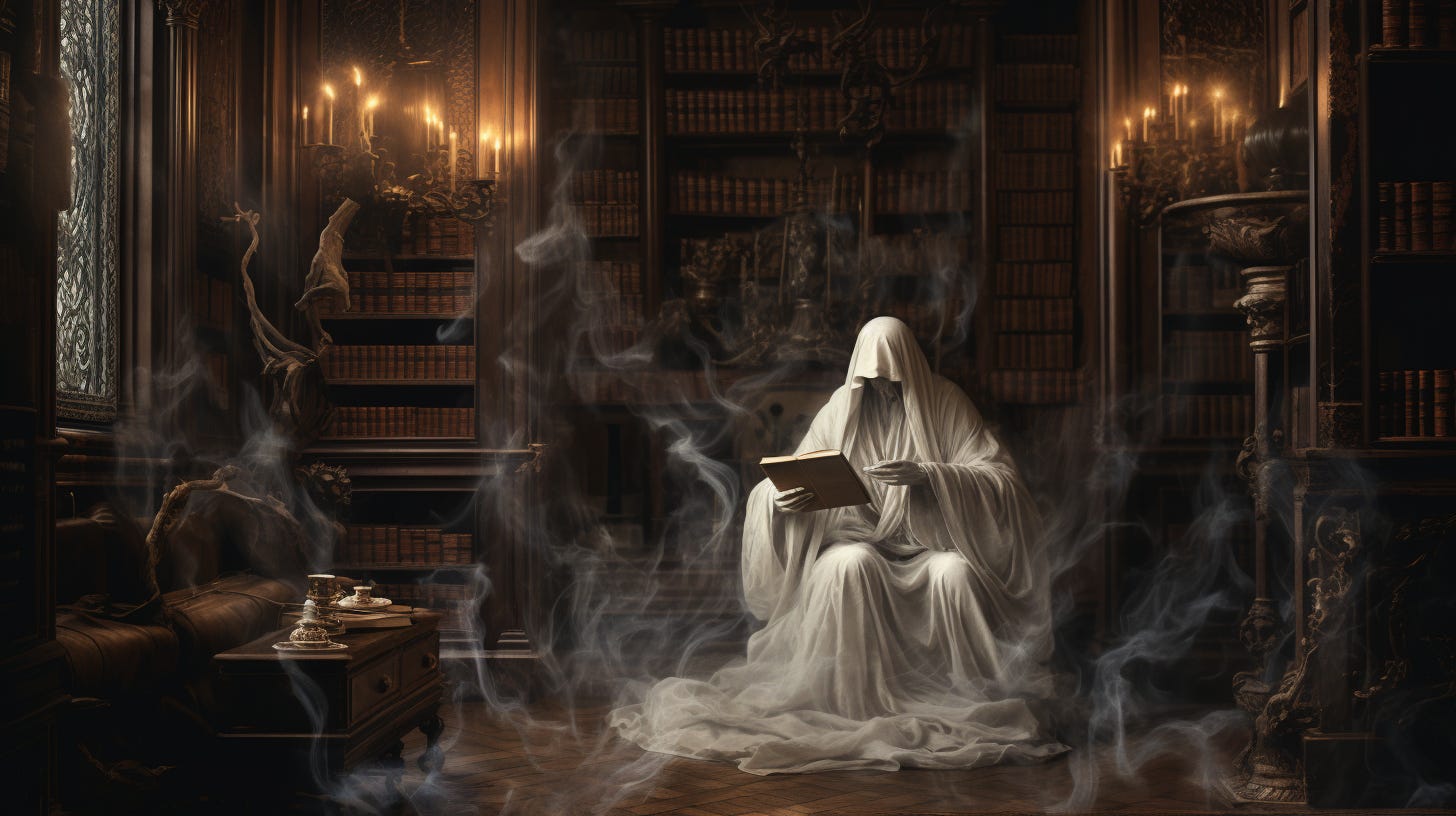Spooky Explorations and Recommendations
To supplement your Gothic proclivities as we navigate the final challenges of winter
The nights remain long, and a chill hangs in the air. Let us immerse ourselves in some Gothic and supernatural tales, so we may find comfort amidst the darkness.
If you’ve been following the Gothic Book Club for February, then it’s very possible you’ve reached a pivotal moment in Jo Walton’s Lent (around Chapter 17). Being mindful of those who read at a different pace, however, I am going to refrain from exploring that title in too much detail (we’re only ten days into the month after all). Let’s just say if you’re reading it and thinking to yourself ‘Colin, is this just some kind of dry historical drama?’, then be assured beloved reader that it is far from that, and great pleasures (horrific delights) await. I can’t wait to discuss that one with you all, so please feel free to message me or comment (with spoiler warnings where appropriate) if you need to unpack any of it.
In the interim, I wanted to share some of the titles which got my year off to a strong start. January is meant to be taken slowly, and that’s exactly what I did. We’re mammals and meant to be sleeping through winter, so I found solace in the next best thing and spent most of the time I wasn’t working by the fire, with a good book and a glass of wine.
As a result, I read a lot of spooky stories and dark delicacies. Let’s take a look at the best of them.
While it may be traditional to read the works of M.R. James (1862-1936) in the depths of winter, I also took the opportunity to watch a lot of the magnificent adaptations which were made for television in the 1970s. James’ works such as The Ash Tree, The Stalls of Barchester and, of course, Whistle and I’ll Come to You were all treated with such reverence and attention to detail by the filmmakers, that they remain a stunning example of ‘less is more’ when it comes to making ghost stories for the screen. They can all be found in a box set released by BFI, and can be picked up for next to nothing if you look around. The M.R. James collection can also be found in the BFI Ghost Stories for Christmas box set, which is also easy to find and inexpensive (and can be watched at any time of the year).
After my stint with James, it felt contextually appropriate to revisit one of the finest Irish writers of the supernatural, Sheridan Le Fanu (1814-1873). Now, if you haven’t read Le Fanu yet, then you’ve certainly felt his influence within genre fiction, particularly anything concerning the uncanny or otherworldly. His work remains as powerful and resonant as it did over 150 years ago, and his ability to chill the blood has not diminished in the passing decades.
I started this Le Fanu micro-marathon with Green Tea, which came in a glorious collector’s edition from Swan River Press, an Irish indie publisher who put immense care and effort into everything they produce. Green Tea is a suitable introduction into Le Fanu’s style, tone and delivery. It’s an ambiguous little tale of a man hounded by a spectral beast of indeterminable origin or intent. Once read, it’s easy to see why Le Fanu is lauded amongst discerning fans of the ghostly story.
Suitably enchanted by this, I immediately reached for Carmilla, Le Fanu’s hugely influential sapphic vampire novella, which led the way for both Bram Stoker’s Dracula and a deluge of Hammer Horror movies. This quintessentially Gothic story is as alluring and rich as when the ink first dried on the page, and is a worthy addition to any bookshelf.
The trouble with Le Fanu, like any pleasure, is that it’s hard to know when to stop. Wishing to savour these stories was a sensation in conflict with my desire to gorge on everything the man ever wrote, and so I turned to the British Library edition of The Gothic Tales of Sheridan Le Fanu (edited and introduced by the wonderful Xavier Aldana Reyes). This is also an elegantly lugubrious collection of shadows in story form. It contains some of my all-time favourites, including Schalcken the Painter, about which I will have to write a separate essay at some point (and there’s also a chilling televisual adaptation available), as well as Madam Crowl’s Ghost and Passage in the Secret History of an Irish Countess.
This is simply scratching the surface. I see the Gothic Book Club Substack becoming a way to further expand our shared love of these wonderful stories, and so you can certainly expect some additional articles on a range of tangential or recommended titles. By all means, spread the word. It feels like a calmer way to talk about books with you all, cutting through the ceaseless noise of social media and offering a little window of calm…even if it appears there may be something lurking within the shadows outside that window.
I think I hear it scratching.





